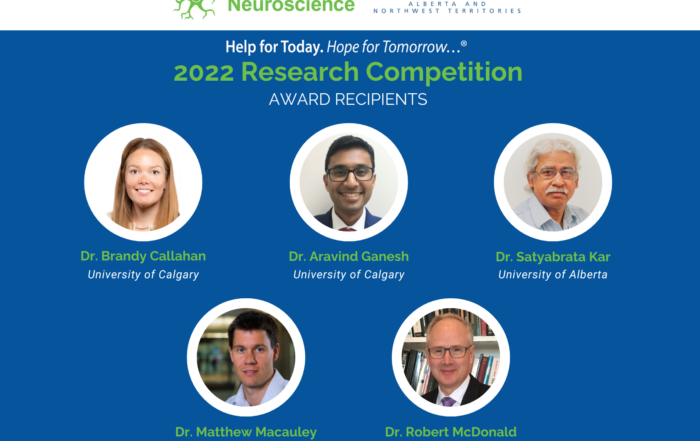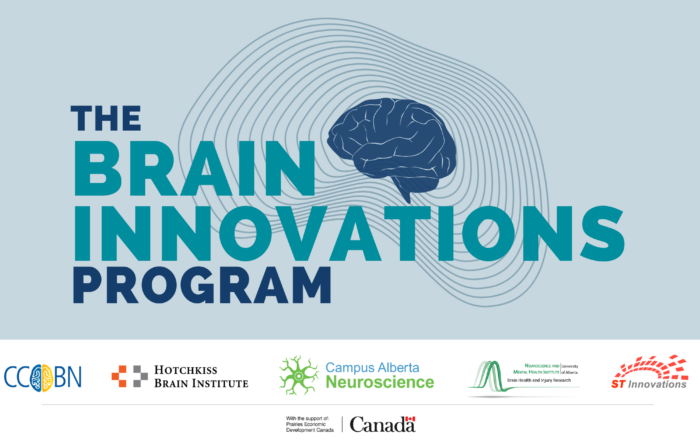Campus Alberta Neuroscience is pleased to announce the awardees of the 2022 Spinal Cord Injury Knowledge Translation Competition.
November 14, 2022
Announcing the Awardees for the 2022 Spinal Cord Injury Knowledge Translation Competition
CAN continuously supports Alberta’s neuroscience community through research funding and collaboration.
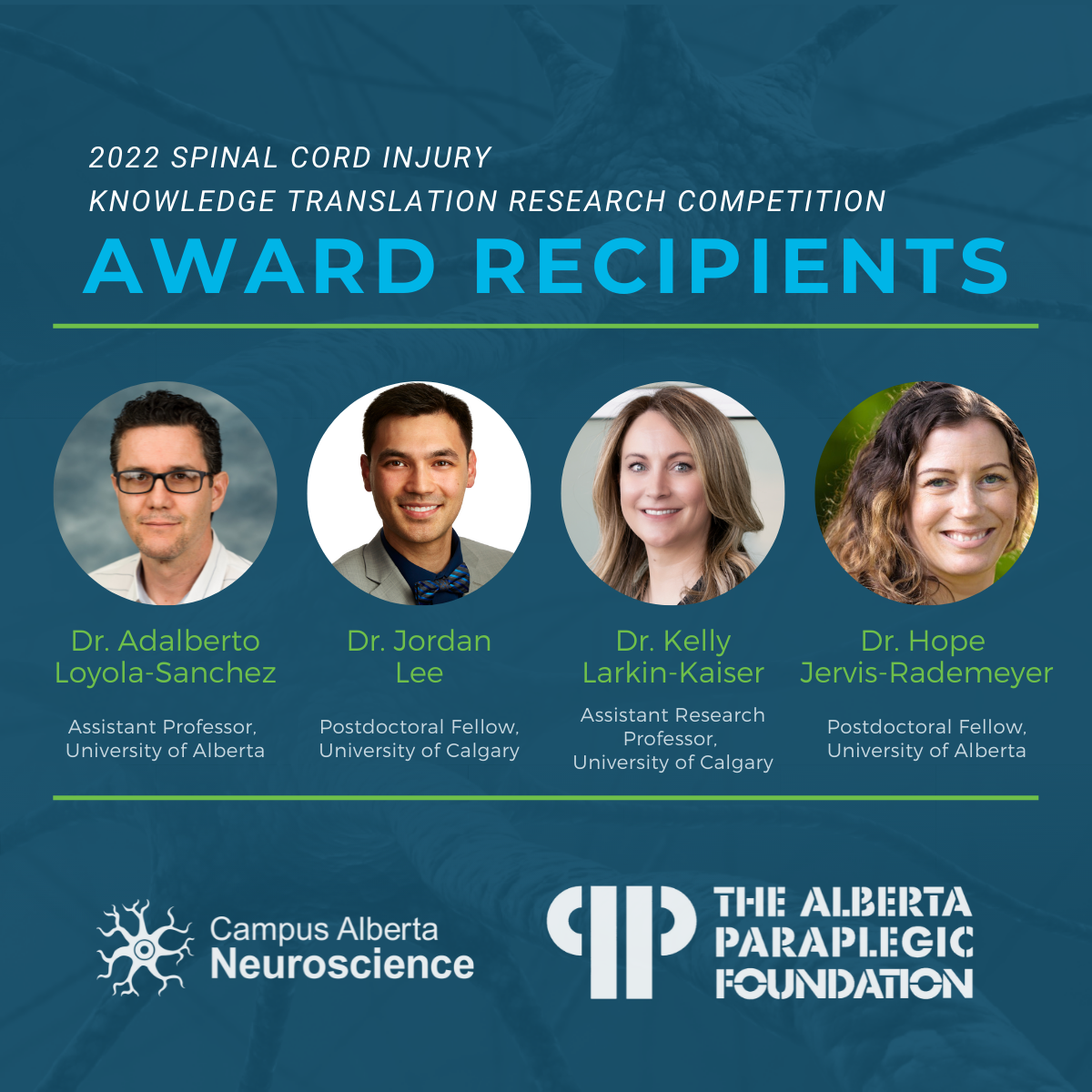
Campus Alberta Neuroscience (CAN) Launched the Spinal Cord Injury (SCI) Knowledge Translation Research Competition in the Spring of 2022, thanks to the generous support of the Alberta Paraplegic Foundation. The competition was designed to support high-impact knowledge translation research in the field of SCI in Alberta, to bridge the gap between evidence and practice, with the goal to improve quality of life for those affected by and living with SCI.
What is Knowledge Translation?
Knowledge Translation, also known as knowledge mobilization, knowledge exchange, or research-to-action, is ultimately about using health research to improve the quality of life and health outcomes of people living with SCI, as well as their families and caregivers. It closes the gap between research and implementation by improving the use of research evidence in practice, policy, and further research. It is a dynamic, two-way process between those who develop the knowledge and those who will use and benefit from the knowledge.
Over the past 10 years, CAN has continued to serve the brain health community in Alberta, with knowledge translation being one of our main focus areas. It helps accelerate our understanding of the brain and improve brain health by moving knowledge from the research labs into the hands of the users, such as healthcare stakeholders, the public, and patients. We believe that Alberta's neuroscience research and translation capacity has the greatest influence through these increased collaborations and partnerships. These connections help drive research toward areas with the highest potential for impact, giving the most benefit to the people who need it - the community.
The Competition
As part of the competition requirements, the award recipients approach their studies through multiple disciplines and multiple methods. They involve various knowledge users throughout the process: individuals who are likely to use research to make informed decisions about health policies, programs, or practices. This includes people with lived experience, healthcare professionals and practices, and people involved with community programming or governing policies. Multidisciplinary studies and the involvement of knowledge users helps to consider problems from new perspectives, which often leads to novel and innovative solutions with real potential for impact.
The 2022 Awardees
The SCI Knowledge Translation Research Competition provides an investment of $25,000 for 12 months. We are pleased to award this funding to four incredible Alberta researchers who come from diverse backgrounds and are at various stages in their careers:
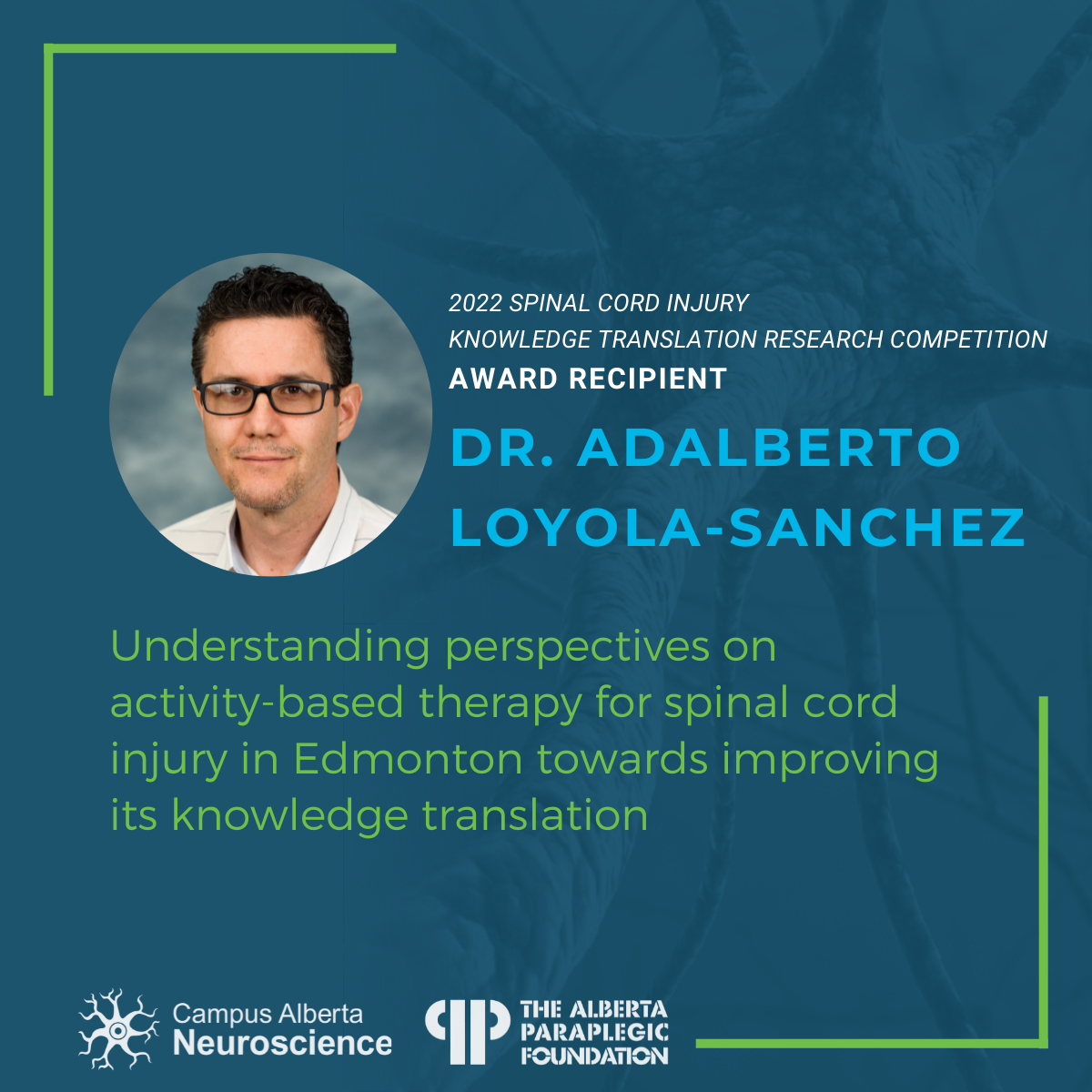
Dr. Adalberto Loyola-Sanchez, Assistant Professor at the University of Alberta, intends to understand the different perspectives on activity-based therapy for individuals living with spinal cord injuries, working towards improving knowledge translation.
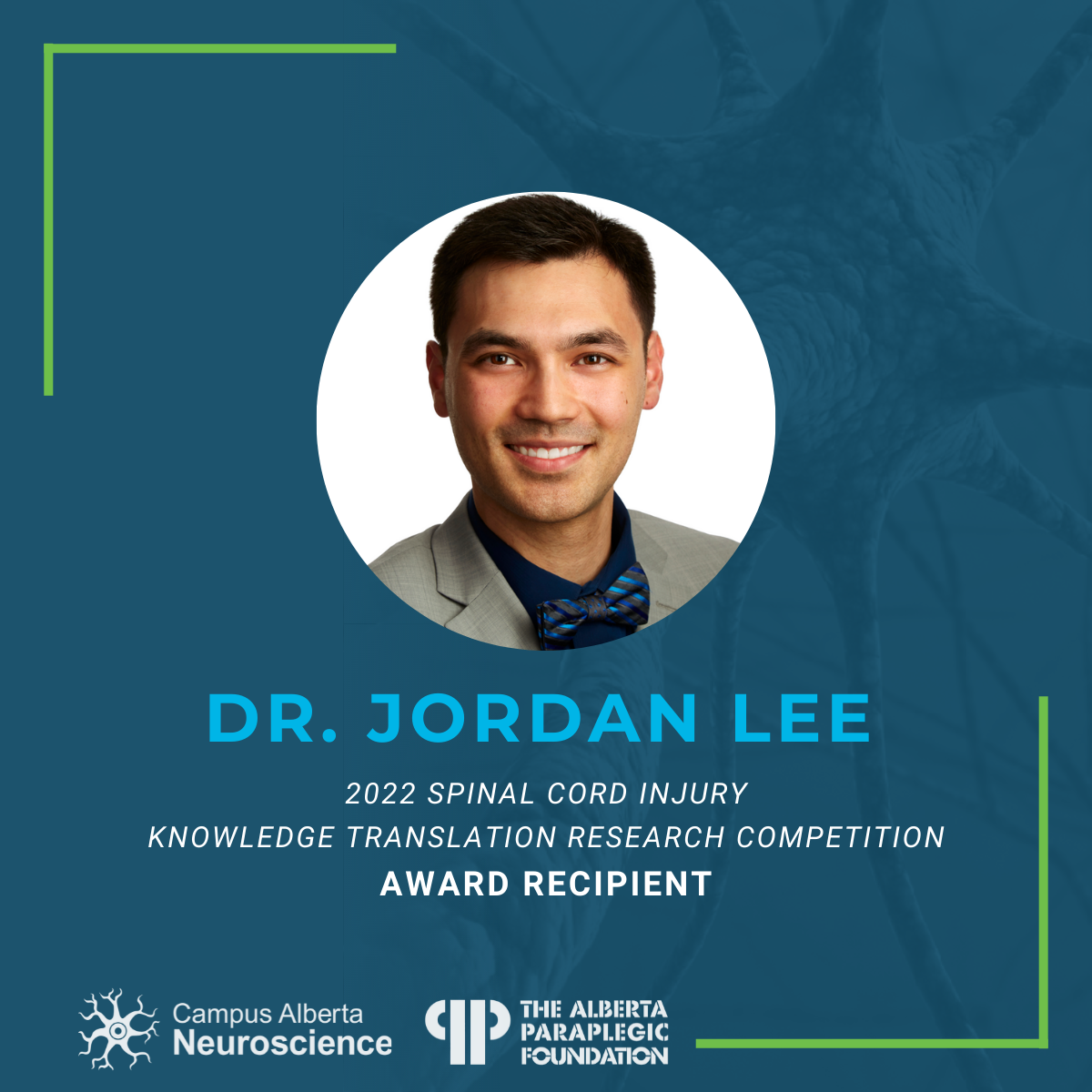
Dr. Jordan Lee, Postdoctoral Fellow at the University of Calgary's RESTORE Network, aims to develop an interventional therapy to stabilize blood low after spinal cord injury, prevent secondary damage, and improve long-term outcomes.
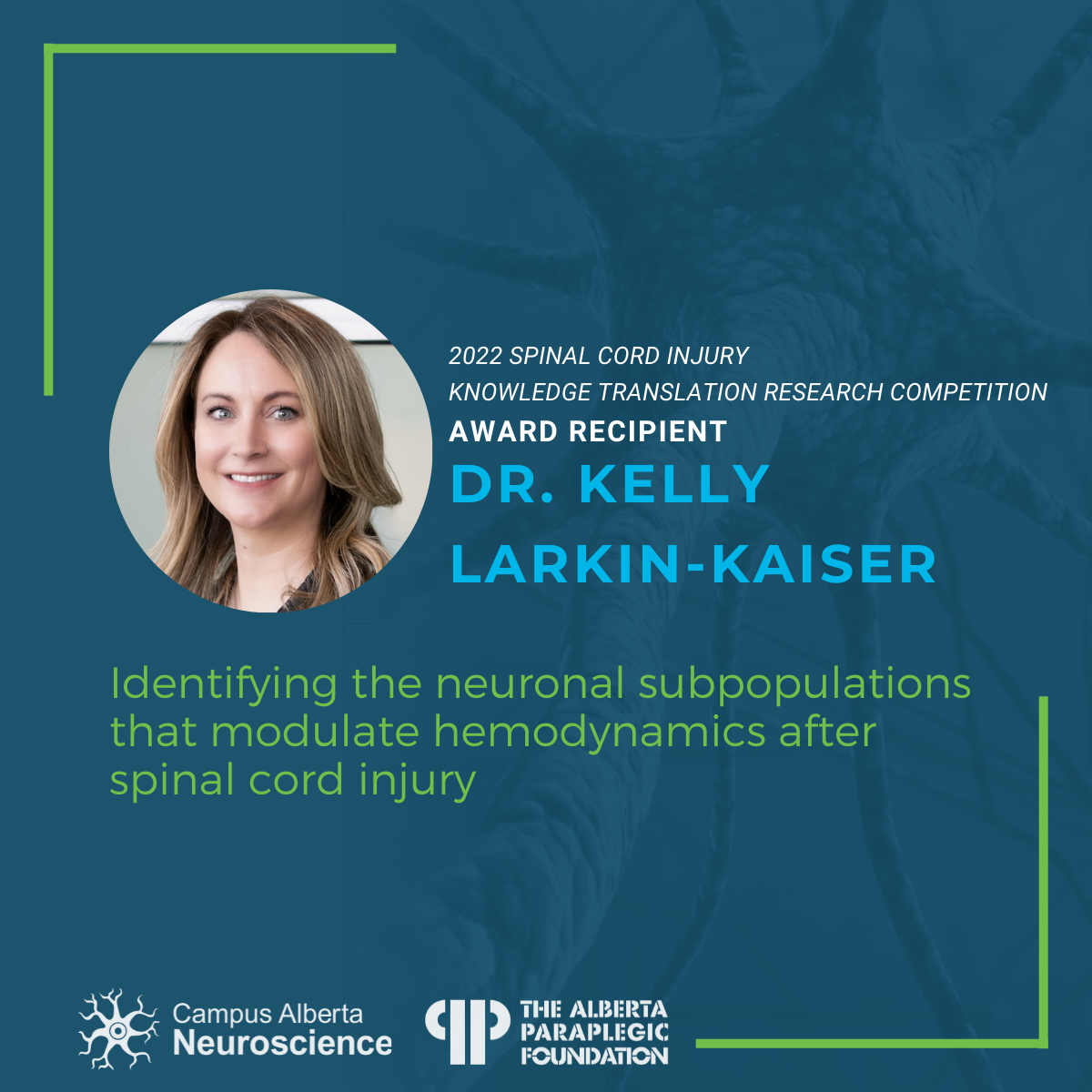
Dr. Kelly Larkin-Kaiser, Assistant Research Professor at the University of Calgary, is working to identify the neuronal subpopulations that modulate hemodynamics after a spinal cord injury.
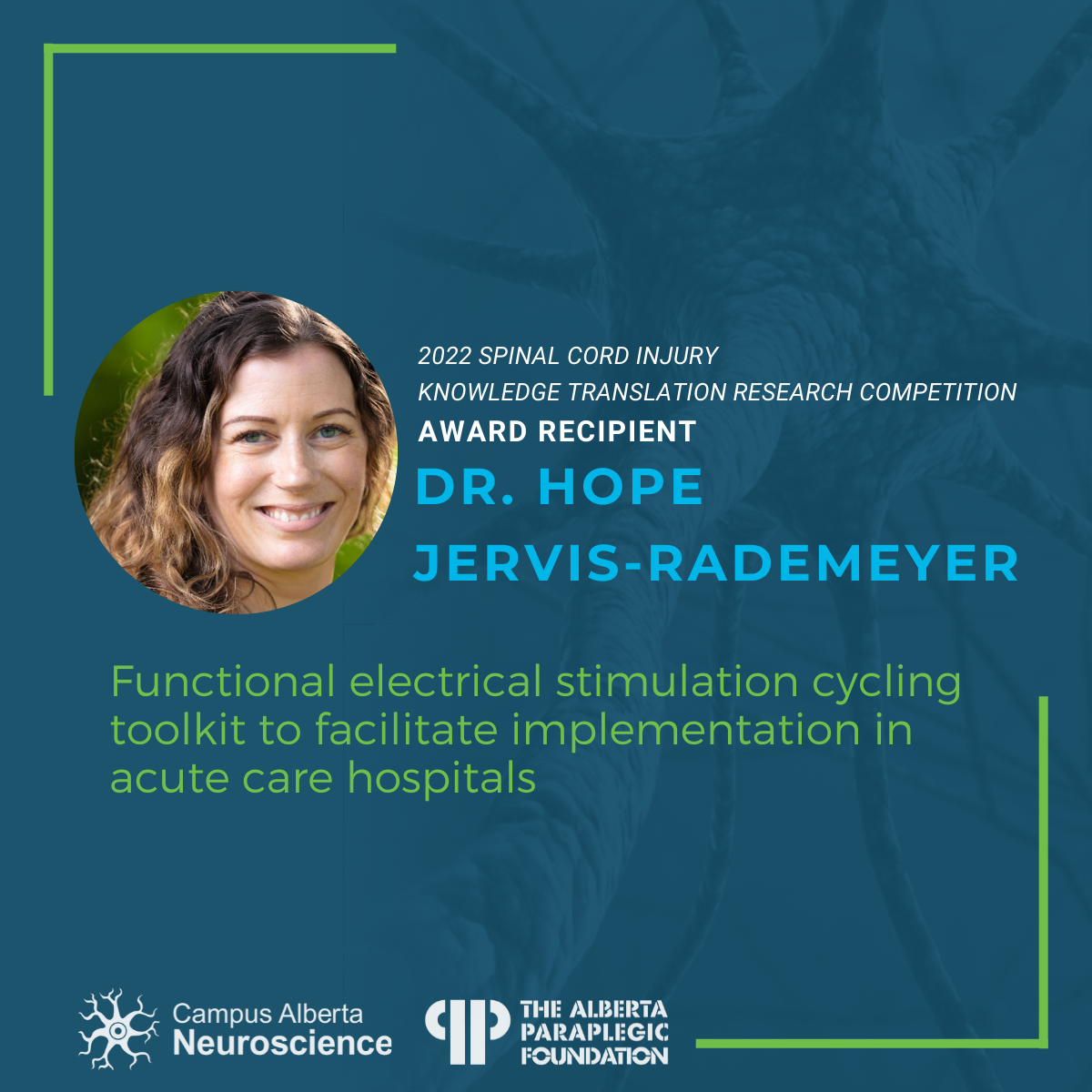
Dr. Hope Jervis-Rademeyer, Postdoctoral Fellow at the University of Alberta, is developing a functional electrical stimulation cycling toolkit which will facilitate implementation in acute care hospitals for those people with spinal cord injuries.


